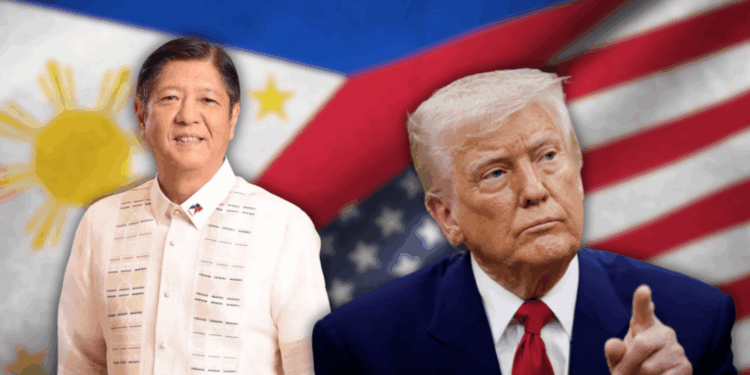- President Trump and Philippine President Marcos Jr. are close to finalizing a major trade deal, with tariffs and trade imbalance as central topics.
- The Philippines may secure better terms than prior U.S. deals with Vietnam and Indonesia, despite recent tariff threats.
- Beyond trade, the leaders reaffirmed strong military cooperation amid ongoing U.S.-China rivalry in the Indo-Pacific.
U.S. President Donald Trump welcomed Philippine President Ferdinand Marcos Jr. to the White House on Tuesday, hinting that a significant trade deal between the two nations is nearly complete. “We are very close to finishing a trade deal, a big trade deal actually,” Trump told reporters at the start of their meeting, underscoring a renewed effort to strengthen economic ties with a strategic Southeast Asian ally.
The visit marks the first by a Southeast Asian leader during Trump’s second term and comes as part of a broader pivot toward regional partnerships amid intensifying competition with China. The United States has already finalized trade agreements with Vietnam and Indonesia, putting added emphasis on the outcome of these ongoing negotiations with the Philippines.
Trade Talks and Tariff Tensions
Currently, the U.S. runs a nearly $5 billion trade deficit with the Philippines, with bilateral goods trade reaching $23.5 billion in the past year. In an effort to push for more balanced terms, Trump recently increased the threatened tariffs on Philippine imports from 17% to 20%. Despite the pressure, the president maintained optimism, saying the numbers would only grow under the new agreement.
According to Gregory Poling of the Center for Strategic and International Studies, the Philippines could potentially secure a better deal than Vietnam or Indonesia, whose baseline tariffs were set at 20% and 19%, respectively. Philippine Assistant Foreign Secretary Raquel Solano added that both sides are working toward a “mutually acceptable and mutually beneficial” agreement.
Strengthening Military and Strategic Ties
Beyond trade, Trump emphasized the importance of the U.S.-Philippine military alliance, referring to the country as a “very important nation militarily.” He praised the success of recent joint military drills and reiterated the value of Manila as a strategic partner in the Indo-Pacific.
Marcos, whose trip began Sunday, has engaged with high-ranking U.S. officials including Defense Secretary Pete Hegseth and Secretary of State Marco Rubio. The agenda also includes meetings with American business leaders to explore investment opportunities in the Philippines, further aligning with Marcos’ goal to boost his country’s economic strength as a key player in the region.














